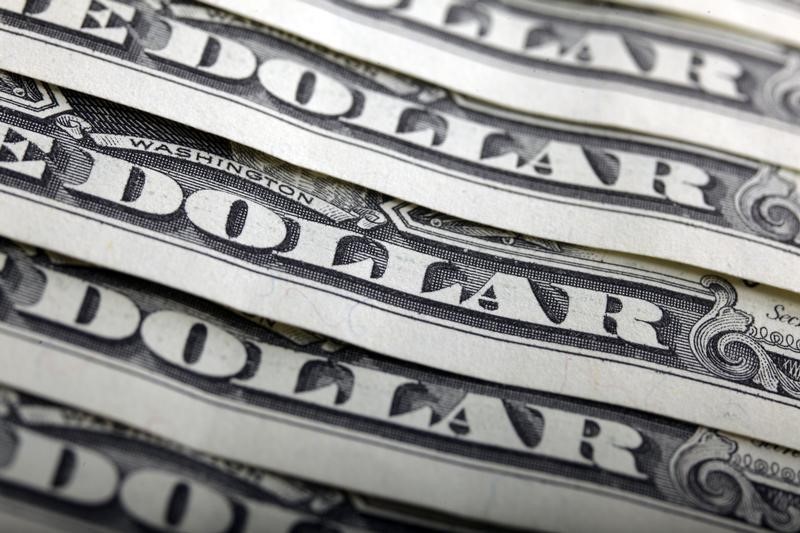Investing.com - The dollar remained broadly supported near more than 11-year highs against the other major currencies on Thursday, after data showed that U.S. jobless claims fell to the lowest level since 2000 last week.
In a report, the U.S. Department of Labor said the number of individuals filing for initial jobless benefits in the week ending January 24 decreased by 43,000 to 265,000 from the previous week’s total of 308,000.
Analysts had expected initial jobless claims to decline by 8,000 to 300,000 last week.
The dollar also remained supported after the Federal Reserve signaled that interest rates could start to rise around mid-year.
Following its policy meeting on Wednesday, the Fed said it would keep rates on hold at least until June and reiterated its pledge to be patient on raising interest rates, while acknowledging the solid economic recovery and strong growth in the labor market.
The U.S. dollar index, which measures the greenback’s strength against a trade-weighted basket of six major currencies, held steady at 94.85, not far from Friday’s more than 11-year highs of 95.77.
EUR/USD edged up 0.21% to 1.1312 after Germany's Federal Statistics Office said the number of unemployed people declined for the fourth consecutive month in January, falling by 9,000, compared to expectations for a drop of 10,000.
The report showed that Germany’s unemployment rate hit a record-low 6.5% in January, down from 6.6% in December, in line with expectations.
Data also showed that Germany fell into deflation for the first time since July 2009 this month. The annual rate of consumer inflation fell 0.3% in January, slowing from 0.2% in December and worse than forecasts for a decline of 0.2%.
Markets were also jittery after Greece's new government moved Wednesday to roll back deeply unpopular austerity policies underpinning the county’s €240 billion international bailout, fuelling fears over a clash with its international creditors.
The pound slipped lower, with GBP/USD down 0.09% to 1.5124 after the Nationwide Building Society reported that U.K. house price inflation rose 0.3% this month, in line with expectations, after a 0.2% uptick in December.
USD/CHF rallied 1.50% to trade at 0.9192 and EURCHF jumped 1.67% to 1.0387 amid growing expectations that the Swiss National Bank will intervene to prevent the appreciation of the currency.
Elsewhere, the yen slid lower, with USD/JPY gaining 0.48% to 118.12.
The Australian and New Zealand dollars were lower, with AUD/USD tumbling 1.24% to fresh five-and-a-half year lows at 0.7789 and NZD/USD down 0.62% to a new four-year trough of 0.7271.
The kiwi weakened after after the RBNZ held its benchmark interest rate at a record-low 3.50% and signaled that it is prepared to lower borrowing costs further as plunging oil prices dampen inflation.
The Canadian dollar held steady at nearly six-year lows, with USD/CAD at 1.2530.
Later in the day, the U.S. was to publish private sector data on pending home sales.
